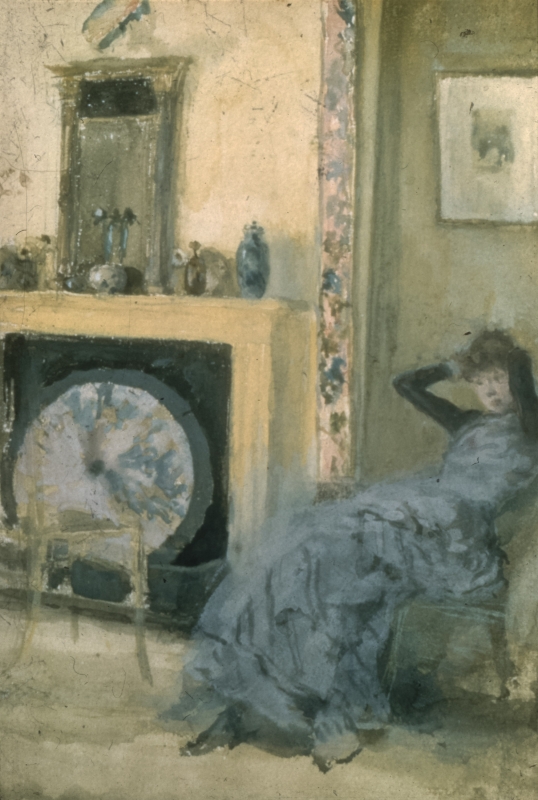Technique
There are traces of graphite under-drawing. The paper has a slight grain. Whistler worked freely with varied techniques, dropping pink and violet into a wet base for the parasol, the picture and embroidery, and using a narrow pointed brush for the crisp ruffles of the dress. There is some body-colour or gouache on the picture on the wall, the woman's face and on her dress, and parasol, and white lines on the chair. Under the embroidered hanging, to right of the fireplace, the black shadow appears oily and the paint has separated. At the lower right corner some of the paint has separated, possibly this being a feature like a curtain that was altered or an area that was damaged.
There are considerable traces of reworking by the artist, above the figure, above her knee, and to left of the foot. There is a small butterfly at lower right, to right of the chair leg, which has been scraped out. There are two butterflies at upper left, the final one being below another that was painted over.
The Metropolitan Museum comments:
'The Yellow Room is among Whistler’s most accomplished watercolors, a harmonious "arrangement" of violet and yellow, dating from his most experimental period of working with the progressive medium at a critical career juncture.The harmonized interiors of Tite Street, which one friend described as having the effect of "standing inside an egg," echoed Whistler’s most controversial exhibition—the 1883 Arrangement in White and Yellow at London’s Fine Art Society. In these terms, The Yellow Room synthesizes many aspects of Whistler’s most adventurous art and design work in the early 1880s—from the private, informal view of his favorite model and muse "at home" to his contemporaneous production of avant-garde works on paper and his fastidious decoration of customized spaces for the display of art.' 1
Conservation History
The paper is laid down on card. The paper is slightly darkened at the edges from the mat; the board is slightly oxidised.
Last updated: 5th June 2021 by Margaret






